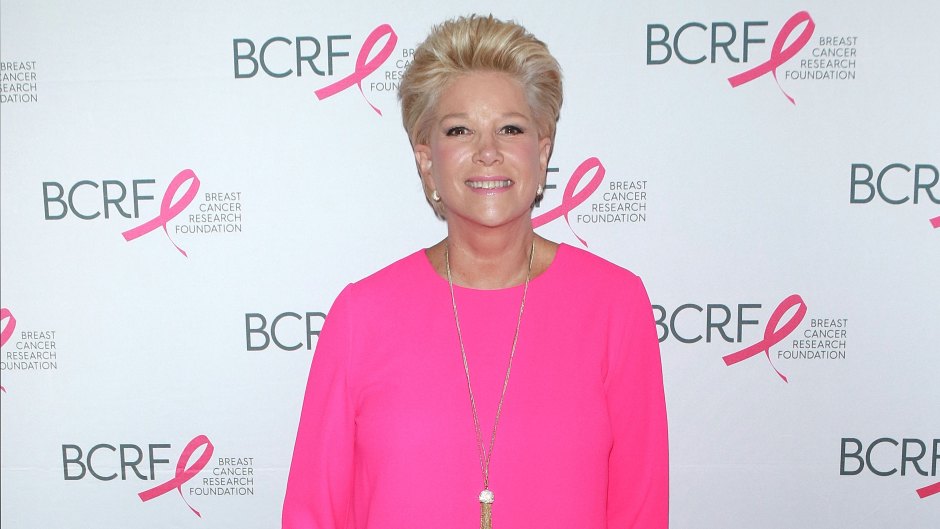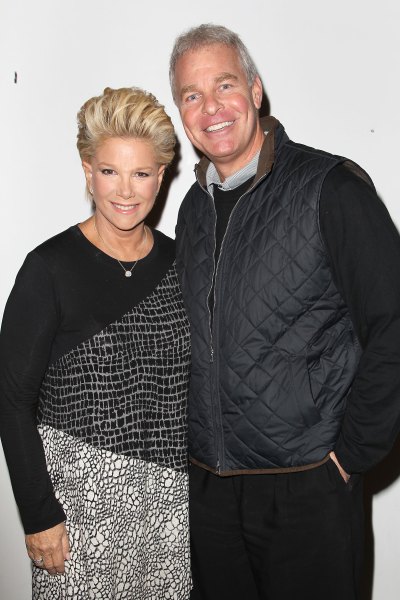
Mediapunch/Shutterstock
Former ‘GMA’ Host Joan Lunden Says She’s ‘Appreciative of Every Day’ After Overcoming Breast Cancer
Some people have used the pandemic as an excuse to sit around in their pajamas all day, but not Joan Lunden. The television journalist and breast cancer survivor, who spent the better part of two decades hosting Good Morning America, has been busy — very busy!
“It’s strange to say, but I’ve had one of my busiest years ever, without leaving my house!” Joan, 70, tells Closer Weekly, on newsstands now. Her projects include a new season of Second Opinion With Joan Lunden, which begins airing on PBS in February, a new podcast about the future of healthcare called “Caring for Tomorrow” and a book about aging, Why Did I Come Into This Room? Joan also recently participated in a virtual luncheon and symposium for the Breast Cancer Research Foundation. “There are more than 3.8 million breast cancer survivors in this country, and that’s because of all the research going on,” she explains.
Joan’s home life is just as full. She and husband Jeff Konigsberg are raising two sets of teenagers: twins Kate and Max, 17, and Kimberly and Jack, 15. “I think they have it much, much harder growing up with social media,” says Joan, who also has three adult daughters from a previous marriage. “It’s really the biggest issue they have.”

It’s been six years since you were treated for cancer. How are you today?
Yes, six-and-a-half years ago I was diagnosed with Stage 2, triple-negative breast cancer. I went through a year of aggressive chemotherapy, radiation and surgery. I spent a year of my life bald. The good part is that because it is so fast-growing, after five years you are considered cancer-free.
That’s wonderful! Was it a difficult decision to share your experience with the public?
I decided probably within 24 hours of being diagnosed that I would learn as much as I could, share everything and maybe have an opportunity to make a significant impact on women’s health. A woman is diagnosed with breast cancer every two minutes in this country. That’s such a scary thought.
How did your father’s career as a cancer surgeon influence you?
Ironically, my cancer diagnosis gave me this amazing opportunity to carry on his legacy. I learned about the Breast Cancer Research Foundation. They provide critical funding for cancer research all over the world. Hopefully, we are going to move past COVID one day, but breast cancer patients will still be facing their diagnosis. That’s why we have to push forward and continue funding the cancer research that ultimately saves lives.
How else did beating breast cancer change your life?
People always used to say to me, “You go into cancer treatment one person, and you come out another.” You come out so appreciative of every day, and of life and of the people who helped you through. I think it’s just human nature that when you battle a life-threatening disease, and you get to the other side, that you have this desire to reach out and help the next person through.
Did you change your diet after your diagnosis?
I started working with a nutritionist, and I remember he said, “I’m going to put you on an eating plan that’s no wheat, no dairy, no sugar, no alcohol.” I looked at him and said, “So, what am I going to eat?” It was vegetables, as many as I wanted. Also nutrient-dense protein. Because I was eating so clean, I didn’t really have the digestive issues that many people have during intense chemotherapy.
Do you still follow that diet?
I don’t do completely gluten-free anymore, I eat whole wheat bread. I really cut out a lot of dairy and as much sugar as possible. As an aging woman, those are pretty much the same tips that you need to follow. As your estrogen level goes down it becomes much easier to gain weight and more difficult to lose it.
You share a lot of those tips in your new book Why Did I Come Into This Room?
I wanted to write about how our bodies function, how they change as we age and how that puts us at risk for cancer and other chronic illnesses. So I shared a lot of how I’ve been dealing with it, or maybe how I haven’t dealt well with some of it. That’s the secret sauce of writing a book, candidly sharing your own life.
You make the case that anyone can age well.
Past generations just expected to decline, but today you are just as likely to see a 70-year-old on their way to a Pilates class. If we are going to live 30 years longer, you have got to do what you can to make sure those are going to be healthy years.

How do you stay fit?
I’m no dummy! I married a guy who owns summer camps. We live in Maine all summer where there are tennis courts, a climbing wall and hiking. My husband also just got me the ultimate birthday gift, it’s called The Mirror. It’s the coolest thing ever because there is a person in front of me and I am following their lead. Aerobics, step, hip-hop, Zumba classes — those are really good forms of exercise. Not everyone has to be a marathon runner.
Do you think that there is an overriding lesson that life has taught you?
I remember when I was a girl, my mother used to say to me, “Joannie, you always have to have a plan.” Plans are the most important thing in life because half the fun of doing anything is anticipating it. You have to plan instead of just letting life happen to you.
Do you ever expect to retire?
The idea of retirement scares me to death. What would I be doing? Maybe in my late 80s. I’ll have lots of jigsaw puzzles to do and a pile of books I haven’t yet read. I will still be doing Pilates and yoga, but for the foreseeable future, I love my life.
Do you ever miss waking up early to go on the air for GMA?
You’ve got to be kidding, right? [Laughs] I’m almost like a rebellious teenager about going to bed at night because I never could stay up and watch prime-time TV. Now I stay up late. You know why? Because I can!
— Louise A. Barile, with reporting by Lexi Ciccone
For more on this story, pick up the latest issue of Closer magazine, on newsstands now.







































